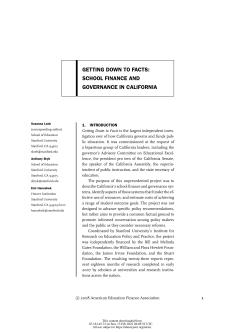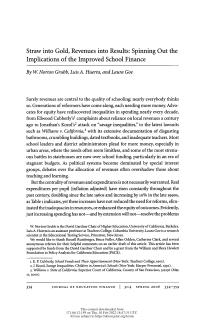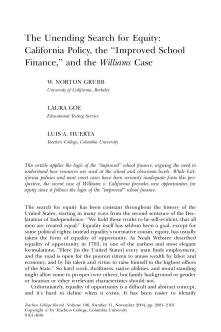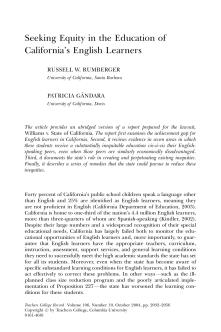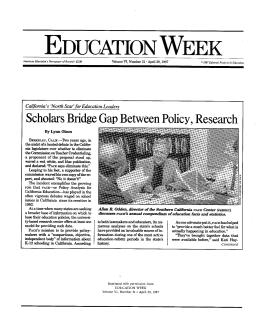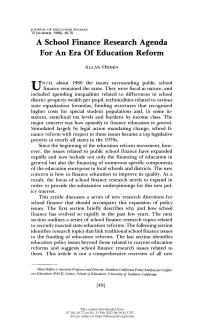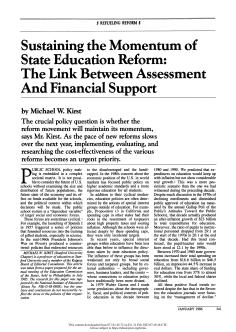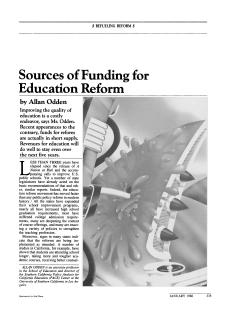School Finance and Governance in California
Published
Summary
Getting Down to Facts is an extensive investigation of CA's public education system commissioned by a bipartisan group of CA leaders. The project aimed to describe California's school finance and governance systems, identify obstacles hindering resource utilization, and estimate costs to achieve student outcome goals. The project resulted in 23 reports by scholars, which highlight that the current school finance and governance systems fail to help students achieve state performance goals, particularly those from low-income families. The reports provide a framework for assessing reform options.
Spinning Out the Implications of the Improved School Finance
Published
Summary
Despite the belief that increased spending leads to better educational outcomes, real expenditures per pupil have doubled since the late 1960s, yet problems in schools persist. An improved school finance approach focuses on effective resources in schools and classrooms that improve valued outcomes, rather than just increasing spending. Clarifying why funding is often wasted and developing new models of connections between revenues, resources, and the results of schooling is essential.
California Policy, the "Improved School Finance," and the Williams Case
Published
Summary
This article applies the logic of the ‘‘improved’’ school finance, arguing the need to understand how resources are used at the school and classroom levels. While California policies and most court cases have been seriously inadequate from this perspective, the recent case of Williams v. California provides new opportunities for equity since it follows the logic of the ‘‘improved’’ school finance.
Published
Summary
This article presents a summary of a report prepared for the Williams v. State of California lawsuit, highlighting the achievement gap for English learners in California and seven areas where they receive an inequitable education compared to their English-speaking peers. It also documents the state's role in perpetuating these inequities and proposes remedies to reduce them.
Published
Summary
PACE, a university-based research center, provides "nonpartisan, objective, independent" information on K-12 schooling in CA. Its analyses have been invaluable to lawmakers and educators during the state's active education-reform period. PACE has played a growing role in debates on school issues, exemplified by a heated debate in the CA legislature over the Commission on Teacher Credentialing. PACE offers a model for providing data for education policies when many states are seeking broader information bases. It has helped provide a better understanding of what is happening in education.
Published
Summary
Before the 1970s, public school finance issues were mainly related to spending inequalities. However, since then, the focus has shifted towards financing education to improve its quality. This article suggests new research directions for school finance that address this policy interest, including topics related to state education reforms, traditional school finance issues, and education policy issues beyond current reforms.
The Link Between Assessment and Financial Support
Published
Summary
Public school policy making is embedded in a complex societal matrix. It is not possible to consider the future of U.S. schools without examining the size and distribution of future populations; the future state of the economy and its effect on funds available for the schools; and the political context within which decisions will be made. The public school system is a "dependent variable" of larger social and economic forces.
Published
Summary
Several state legislatures have acted on recommendations to improve U.S. public schools, resulting in a swift and broad education reform movement. States have expanded school improvement programs, increased high school graduation and college admission requirements, deepened course offerings, and strengthened the teaching profession. Indicators of progress include longer school attendance, tougher academic courses, better counseling, higher achievement test scores, and increased teacher pay. This swift and broad movement gives reason for optimism about its success.
